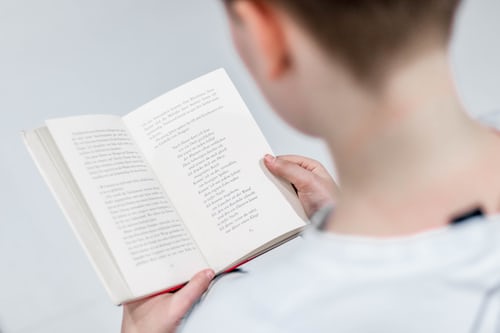
What To Do If You Fall Behind With Your Reading
Reading lists are a common part of education. There’s a plethora of texts to study for every subject, and the process can seem relentless, with a never-ending number of books and other reading materials to get through. Unfortunately, many pupils then fall behind. After all, there’s more to life than studying, and it’s a common occurrence to occasionally play harder than you work.
However, being behind on your reading is a sticky spot to be in, so it’s important that you work a solution to catch up as soon as possible. But what can be done? Here’s what you should do if you fall behind on your reading!
Don’t Panic
Once you’re behind, it can feel like you’ll stay behind. Well, that’s not true. It’s important to remember that any situation you find yourself in at school is entirely fixable. There’s always a way to turn things around, so start with a positive mindset. Sometimes the simplest solutions are the best; stay calm and don’t panic, because only then can you steadily improve things.
Instead of worrying, be proactive. List the texts you’re behind on and devote more time to your reading each evening to catch up. Remember, one in eight schools do not have a library, so if yours has one, take advantage of it! Head in on your lunch break to get some more reading done. If you commit to getting back on track, then it’ll surely happen eventually.
Contact your Teachers
This might seem like an option that’s firmly off the table, especially if your teacher is the less forgiving sort. Still, even if you’re apprehensive about this option, muster your courage and let them know you’re behind with your reading. The sooner your teacher understands where you are with your learning, the more practical they can be in helping you get back on track, as well as offering useful instructions and advice.
Informing your teachers also shows that you’re honest, and that you at least care about your learning. Explain your circumstances, why you’re behind, and demonstrate a good attitude and desire to improve. No one appreciates being lied to, least of all teachers, so show some good character in telling the truth. They’ll also probably avoid asking you any text-related questions in class for that day too, so at least you won’t be nervously blagging your way through lessons either!
Engage with Lessons
When pupils are behind, a sense of ‘giving up’ can occur in the classroom. Don’t switch off for that hour, though, because it’s a very useful period for you no matter what stage you are at in your learning. Listen and contribute as best you can. Though there may be gaps in your knowledge, there will still be areas where you can get involved or pitch in some good guess work. Also listen, to get as much as you can out of your lesson, as it may help you to know what ideas and topics to look out for when you’re doing your own reading.
Remember, school is as much about asking questions as it is knowing answers. If you don’t know something, get that hand up or ask your classmates for clarity. Asking for help from those around you is always a great way to go, so don’t feel any shame in doing so.
Reading for Fun
When you’re invested in a favourite book, you’re also developing crucial literacy skills. You can find meaning and decode texts more quickly, build your attention span for reading, and just generally understand more complex themes and concepts. Therefore, reading develops your brain and your skill set in important ways that will help you in education.
If you read for fun, then reading for school may not seem like much of a drag at all, enabling you to keep up with your academic texts without issue. In 2015, it was reported by the BBC that increasing numbers of school pupils were taking up reading for pleasure, and books are only getting more popular today, with authors like JK Rowling, John Green and David Walliams being in constant circulation. If you’re well-read, you’ll have fewer problems keeping up.
While your science textbooks may not be as enthralling as your favourite fiction, your reading ability will improve if you keep challenging yourself and engaging with different material. After all, it was reported in early 2018 that secondary school kids were not reading challenging, age-appropriate books, so try to test yourself and don’t keep falling back to Harry Potter alone. Try and enjoy reading varied materials in your free time, and the speed and quality of your academic reading will improve.
Conclusion
It’s important to be proactive if you ever slip behind with your reading. It can be a fun and fulfilling activity on its own, so dive in, catch up and even try to enjoy it! Maintain an open dialogue with your teachers on your progress, ask for help when you need it, and before long this will just be a small blip in your studies!
Below are some links you can click on if you would like to investigate these topics further
On the need for libraries in schools: https://www.theguardian.com/teacher-network/2018/feb/22/reading-progress-halts-when-students-reach-secondary-school
About the enthuisiasm for reading among students: https://www.bbc.co.uk/news/education-32797986
On the lack of school libraries: https://www.bbc.co.uk/newsround/50078991